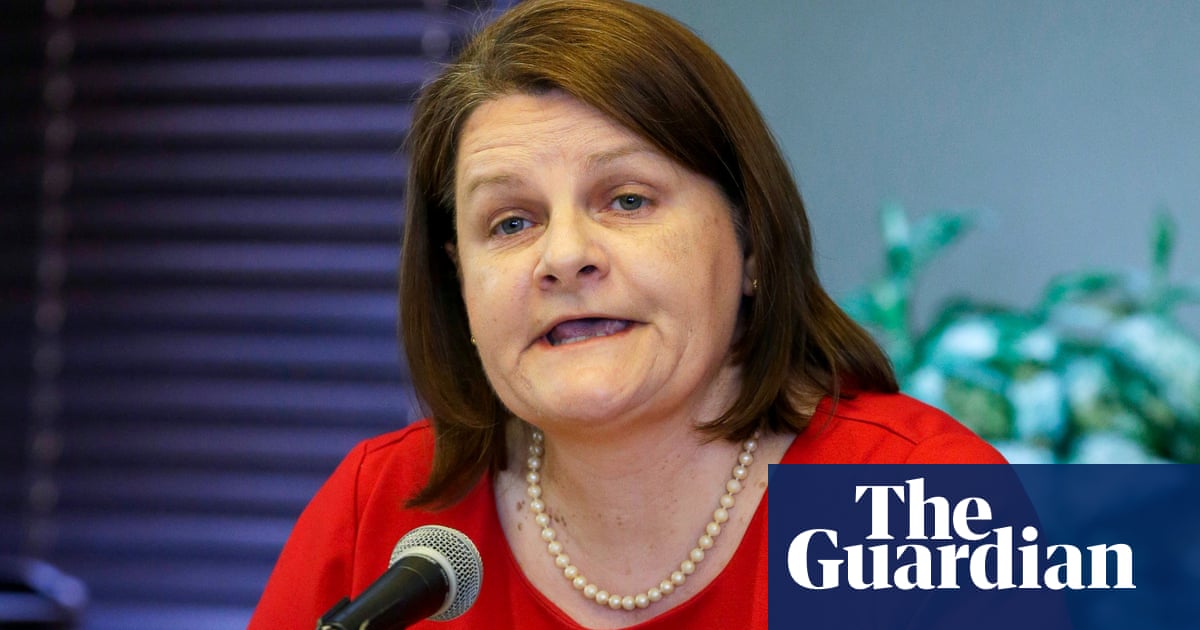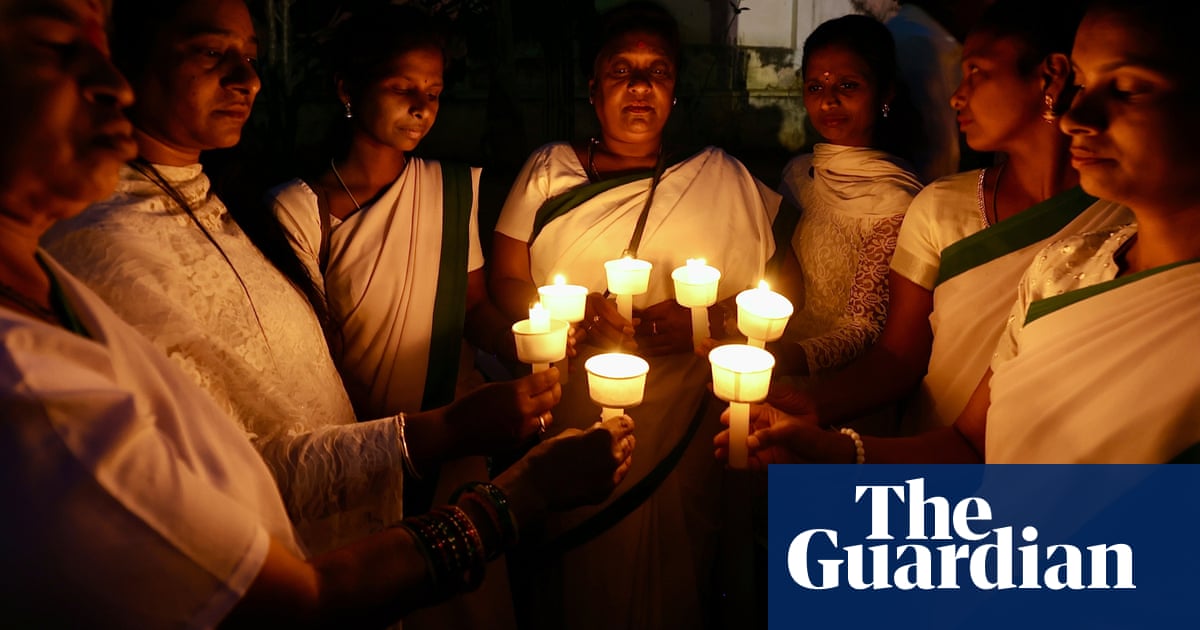There are two games to think about at Twickenham on Saturday, the one the Red Roses will play in, and the one they want to play in. The first is their grand slam decider against France, which kicks off at 4.45pm. The second – at the same venue, five months and one day later – is the World Cup final which, if everything goes as the team hopes at the Stadium of Light, Franklin’s Gardens, Ashton Gate and the other grounds they will visit between now and then, will be the next game they play at the home of English rugby.
The Red Roses head coach, John Mitchell, has been around long enough to know the smart thing to do is separate the two. “We’ve got to be careful focusing on the World Cup final because we’ve got to earn the right to contest it,” Mitchell said this week. “It’s good to have the chance to be back at our home stadium, but it’s an isolated situation, that’s the way we see it.”
But the two games are twin peaks. If the Red Roses make it to the top of the first one, they will only see the second beyond it. The Six Nations is familiar terrain. They have won the title six times in a row and are on a run of 33 consecutive victories in the competition. But they have not been up to the summit of the World Cup since 2014 when Katy Daley-McLean’s team beat Canada 21-9 at the Stade Jean Bouin in Paris. Eleven years is a long time in any sport and a lifetime in one moving as fast as women’s rugby. Only a handful of players from that squad are still in this one.
The years in between have seen the development of a professional game, the introduction of new annual domestic and international competitions, the separation of the women’s Six Nations from the men’s tournament, the launch of the Olympic Sevens and the expansion of the World Cup to include 16 teams.
And the remarkable progress of the Red Roses, who have proved themselves to be one of the most successful sports team on the planet. In this Six Nations: 38-5 v Italy, 67-12 v Wales, 49-5 v Ireland, 59-7 v Scotland. They have rattled up 213 points and conceded only 29, scored 33 tries and shipped six, and – by their own admission – done it all without ever turning in a performance they have been entirely happy with. They have won 25 games in a row, and 54 of their last 55. Which brings us right around to that one they lost.
It was, of course, the last World Cup final, when they went down 34-31 to the Black Ferns at Eden Park in one of the most compelling games of the last decade. When you win as often as the Red Roses do, the losses are going to stay with you. This one still haunts them. The feeling back then was the team were so used to winning (they went into that match on the back of 30 consecutive victories) they struggled when the game began to turn against them. It is Mitchell’s job to make sure the same thing does not happen again this year.

When Wales were in their prime, Warren Gatland used to say he felt they had forgotten how to lose. With the Red Roses, the worry is that they have forgotten what to do when it feels they might. Mitchell relies on internal competition between his first and second teams to create that sense of pressure. “It is unusual, especially to people on the outside,” says Mitchell, “but what you don’t see is what we’re doing internally, we get plenty of failure in training, and we thrive on that, that’s where we get our drive.”
There is a lot riding on whether they can pull it off. In England, the World Cup has been pitched as an opportunity to grow the game. The RFU has launched a project called Impact ‘25 in partnership with UK Sport and Sport England, which has provided £12m in funding for the women’s game, a lot of it for basic amenities like upgraded toilets and changing rooms.
Given that the Red Roses’ run of results was the key reason why the RFU was able to meet its elite performance targets (which allowed their executives, including the CEO Bill Sweeney, to claim the lion’s share of their six-figure bonuses) it is the least they ought to be doing.
after newsletter promotion
Rugby needs the women’s World Cup to succeed. The women’s version is the one area of the game which is still growing, and fast. World Rugby say that the number of registered participants has increased by more than 50% in the three years since the last World Cup and a series of attendance records have been set around the world including in England, where a crowd of 58,598 turned out for their game against Ireland in 2023. These are double-edged statistics, which reflect the time, money and attention the governing bodies are now investing into women’s sport, and also their dismal lack of support for it in the years gone by.
Ticket sales for this grand slam match have been underwhelming. The RFU is expecting Twickenham to be half full on Saturday, whereas all the talk beforehand was that it might be the first time in history that the ground had been sold-out for a women’s match.
It is a sign of how far the women’s game has come that a crowd that size can be described as disappointing, the first women’s World Cup final in 1991 did not get 4,000 spectators, let alone 40,000, and there is little doubt Twickenham will be sold out for the final in five months’ time. It seems likely that a lot of fans decided to save their money for that tournament. As demand goes up, so do expectations, and English rugby is banking on the Red Roses rising to meet them.

 9 hours ago
7
9 hours ago
7













































